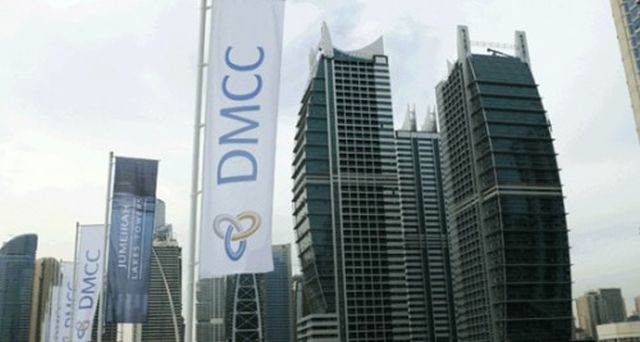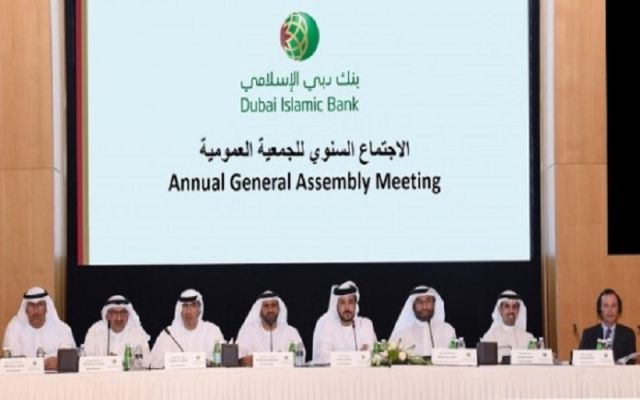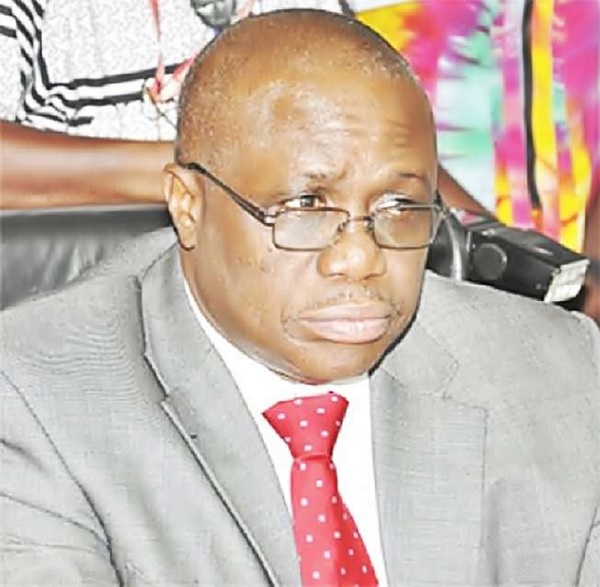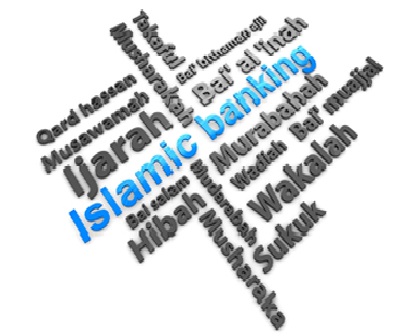
by admin | May 25, 2021 | Commodities, Commodities News, Muslim World
 Dubai : The United Arab Emirates’ (UAE) biggest free zone Dubai Multi Commodities Center (DMCC) welcomed Islamic Bank of Afghanistan as its newest member, DMCC said on on Saturday.
Dubai : The United Arab Emirates’ (UAE) biggest free zone Dubai Multi Commodities Center (DMCC) welcomed Islamic Bank of Afghanistan as its newest member, DMCC said on on Saturday.
The bank, Afghanistan’s first Islamic bank, will use service facilities of DMCC in order to execute multi-currency trades in line with Islamic law, or Sharia, DMCC said in a statement.
The bank is licensed by the central bank of Afghanistan in April in line with interest-free, speculation-free Sharia principles, Xinhua reported.
It will use the DMCC Tradeflow, an online platform for registering ownership for commodities stored in Dubai, under the Murabaha transaction model “in order to take multi-currency trades from across the globe,” said the statement.
Murabaha is a key concept in Islamic financing, where a markup is known in advance between parties to help reduce ambiguities in the transaction.
Under Murabaha, the buyer buys a commodity and sells it at higher prices during an extended period and receives payment from his client in order to avoid interest, which is “haram” (prohibited) under Sharia.
“Our partnership will facilitate the bank’s Murabaha transactions to develop a wide range of new Islamic financial institutions,” said Sanjeev Dutta, Executive Director of commodities at DMCC.
The membership “will enable us to offer a broader range of Sharia-compliant financial products and services, and reach to the unbanked customers within our country,” said Amer Khalil-ur Rehmanm, CEO of Islamic Bank of Afghanistan, which runs 59 branches across its home market.
According to DMCC, more than 26,000 transactions were executed on the DMCC Tradeflow platform in the first quarter of 2018.
In the first four month of this year, DMCC Tradeflow has handled Sharia-compliant commodities worth $6.95 billion as 30 institutions from three continents were involved.
DMCC harbors more than 15,000 firms from 170 countries employing 60,000 people.
—IANS

by admin | May 25, 2021 | Islamic Banking, Islamic Finance, Muslim World, News
 Dubai : Following the conclusion of its Annual General Meeting (AGM), Dubai Islamic Bank (DIB) announced recently that the meeting approved the distribution of 45 fills per share as cash dividend for 2017, closing another year with strong returns to shareholders since the bank embarked on a growth agenda four years ago.
Dubai : Following the conclusion of its Annual General Meeting (AGM), Dubai Islamic Bank (DIB) announced recently that the meeting approved the distribution of 45 fills per share as cash dividend for 2017, closing another year with strong returns to shareholders since the bank embarked on a growth agenda four years ago.
The general assembly also approved the bank’s 2017 financial statements. For the year 2017, DIB reported a net profit of AED 4.5 billion, an increase of 11 percent compared to AED 4.05 billion in 2016. Other agenda items discussed at the AGM included the review of the Fatwa and Shariah Supervisory Board Report and the reappointment of the bank’s external auditors.
The AGM has also approved DIB’s capital increase by way of a rights issue to bolster the bank’s CET1 further and facilitate credit expansion in 2018. The rights will be offered after obtaining the required approval from relevant regulatory authorities, CPI Financial News reported.
“The year 2017 has been yet another remarkable period of growth for the bank as we continue to make great strides towards our expansionary agenda in both local and international markets. Despite challenges stemming from the global economic slowdown and across the region, the bank’s continued to display its resilience to external factors with double-digit growth in profitability. As we move forward into 2018, we remain in full alignment with Dubai and the UAE’s plans of building a diversified economy and an attractive global hub for Islamic Finance,” said Director-General of the Ruler’s Court of Dubai, and Chairman of Dubai Islamic Bank Mohammed Ibrahim Al Shaibani, commenting on a fourth consecutive successful financial year.
DIB’s evolution in the last four years has witnessed a complete transformation in the size and scale of its business. With the balance sheet and related key metrics of financing and deposits nearly doubling or more during the period, the profitability has risen by an unprecedented three times with both returns on equity (ROEs) and returns on assets (ROAs) recording significant jumps as well. The last few years have also seen a complete reconstitution of the bank’s business model which now boasts a significantly more diversified portfolio with vastly reduced concentration risks.
“The bank has showcased another remarkable year. Our focus on returns to the shareholders continues with ROE at 18.7 percent and dividend payout of nearly 50 percent. Growth 2.0 is on course with the AGM approving the capital increase special resolutions. The continuous market leading performance that you have witnessed DIB give since 2014 has come from a very clearly defined strategic plan, which has focused on the franchise’s strengths effectively limiting the impact of market conditions over the last few years. I thank the shareholders for their continuous support throughout the recent growth phase and look forward to the same as we continue to strive for greater heights in the years to come,” said Dr. Adnan Chilwan, Group CEO of DIB.
—SM/UNA-OIC

by admin | May 25, 2021 | Investing, Muslim World
 Kuala Lumpur : Muslim countries and affinity customers should tap into the green sukuk market as it is in line with the Shariah-compliant standards, said CIMB Islamic Bank Bhd Chief Executive Officer Rafe Haneef.
Kuala Lumpur : Muslim countries and affinity customers should tap into the green sukuk market as it is in line with the Shariah-compliant standards, said CIMB Islamic Bank Bhd Chief Executive Officer Rafe Haneef.
He said there was growing demand for green sukuk, capitalizing on projects related to environmental sustainability and green environment infrastructure projects.
“Last year, the environmental, social and governance (ESG) risks investment globally amounted to around $23 trillion and compared with the Islamic finance industry, the total size is about $2 trillion, it was 12 times higher.”
“And look at the actual demand for the ESG-compliant assets which is $45 trillion, the demand is almost double of what we have regarding supply, Bernama News reported.
“So, there is certainly a good reason why we should tap into green sukuk,” he said during the second-panel discussion on Green Financing/Green Sukuk at the third Annual Symposium 2017 on Islamic Finance here on Tuesday.
—SM/OIC-UNA

by admin | May 25, 2021 | Muslim World

Head of Banking Supervision at the Bank of Ghana Franklyn Belyne
Accra, Ghana (IINA) – The Bank of Ghana has revealed recently that Ghana could see launching operation of the first Islamic bank this year, Ghana’s online news agency Pulse.com.gh reported.
The central bank earlier had to ask for an extension of launching till November because of challenges in meeting all key banking requirements.
Islamic finance may be viewed as a form of ethical investing, or ethical lending where no loans are possible unless they are interest-free.
Among the ethical restrictions is the prohibition on alcohol, gambling and consumption of pork. Islamic funds would never knowingly invest in companies involved in gambling, alcoholic beverages, or porcine food products.
Its practitioners and clients need not be Muslims, but they must accept the ethical restrictions underscored by Islamic values.
Head of Banking Supervision at the Bank of Ghana Franklyn Belyne said the regulator is waiting for some final requirements to be met by the yet-to-be-named bank before it can start operations.

by admin | May 25, 2021 | Muslim World
 Kuala Lumpur, (IINA) – The Indonesian government is pushing for the formation of a new Islamic bank through the merger of four domestic banks, IslamicFinance reported.
Kuala Lumpur, (IINA) – The Indonesian government is pushing for the formation of a new Islamic bank through the merger of four domestic banks, IslamicFinance reported.
Bank Mandiri, Bank Negara Indonesia, Bank Rakyat Indonesia and Bank Tabungan Negara have been prompted to merge their Islamic finance operations and form the new institution with capital of $1.12 billion and combined assets of more than $8 billion reported Nikkei.
The push comes as Indonesia strengthens its Islamic finance industry domestically and promotes it internationally with the aim of forging multilateral relationships with Turkey and the Islamic Development Bank. Previously Indonesia and Turkey have said they were ready to put up $300 million each for the creation of an Islamic mega bank.
Turkish financial authorities plan to treble Islamic banking assets as a percentage of total assets within the domestic banking sector from the present 5.2 percent over the next 10 years, in a bid to nurture the country’s Islamic finance market.
Whilst the proposed Indonesian or Turkish banks will be hugely overshadowed by Gulf Islamic Banks in terms of assets and capital, they will have access to much bigger markets. Both Indonesia and Turkey being Muslim majority countries with combined populations of around 325 million offer greater growth prospects in engaging unbanked populations of their societies, as well as eating into the market share of conventional banks.
According to data from the IslamicFinance.com Islamic Bank Chart, the top six global Islamic Banks are all based in the Gulf with combined assets of just under $250 billion.

 Dubai : The United Arab Emirates’ (UAE) biggest free zone Dubai Multi Commodities Center (DMCC) welcomed Islamic Bank of Afghanistan as its newest member, DMCC said on on Saturday.
Dubai : The United Arab Emirates’ (UAE) biggest free zone Dubai Multi Commodities Center (DMCC) welcomed Islamic Bank of Afghanistan as its newest member, DMCC said on on Saturday.



